The EAG Council is made of Officer Councillor and Councillor positions. Each year, several positions become vacant.
Officer Councillors are elected by the Council and serve for various terms according to the position. Councillors are directly elected by the EAG Members and serve for three years, participate in council discussions, decisions and initiatives. Up to two Councillors can be appointed by the Council in connection with specific activities.
Elections of the EAG Council 2024
Election of Councillors by EAG Members
The Council elections took place from 17 October to 8 November 2023. Three candidates were proposed and EAG members were invited to select two.
Participation reached 32%. We thank EAG members for their participation and are especially grateful to all candidates for agreeing to stand for elections.
Julie Prytulak and Paolo Sossi were elected.
Candidates for the elections of the EAG Council 2024:
- Bernadett Bajnóczi, Research Centre for Astronomy and Earth Sciences in Budapest, Hungary
- Julie Prytulak, Durham University, UK
- Paolo Sossi, ETH Zürich, Switzerland
Election of Councillors by the EAG Council
The EAG Council elected Pallavi Anand (Open University, UK) as Councillor, Baptiste Debret (IPGP, France) as Early Career Councillor, and Béatrice Luais (CRPG Nancy, France) as Treasurer. They will start their duties in the council in January 2024.
Past Council Elections
Elections of the EAG Council 2023
Election of Councillors by EAG Members
The Council elections took place from 18 October to 10 November 2022. Four candidates were proposed and EAG members were invited to select two.
Participation reached 37%. We thank EAG members for their participation and are especially grateful to all candidates for agreeing to stand for elections.
Raúl Fonseca and Silke Merchel were elected.
Candidates for the elections of the EAG Council 2023:
- Bernadett Bajnóczi, Research Centre for Astronomy and Earth Sciences in Budapest, Hungary
- Raúl Fonseca, Ruhr-University Bochum, Germany
- Carlos J. Garrido, CSIC, Granada, Spain
- Silke Merchel, University of Vienna, Austria
Election of Councillors by the EAG Council
The EAG Council elected Dan Frost (University of Bayreuth, Germany) as Vice-President, and Martin Whitehouse (Swedish Museum of Natural History, Sweden, Sweden) and Karen Hudson-Edwards (University of Essex, UK) as co-Chairs for the Goldschmidt2025 Organizing and Science Committees. They started their duties in the council in January 2023.
Elections of the EAG Council 2022
Election of Councillors by EAG Members
The Council elections took place from 11 October to 3 November 2021. Six candidates were proposed and EAG members were invited to select three. Participation reached 41%. We thank EAG members for their participation and are especially grateful to all candidates for agreeing to stand for elections. Lena Alakangas, Ernest Chi Fru and Johanna Marin Carbonne were elected.
Candidates for the elections of the EAG Council 2022:
- Lena Alakangas, Luleå University of Technology, Sweden
- Ernest Chi Fru, Cardiff University, UK
- Raúl Fonseca, Ruhr-University Bochum, Germany
- Carlos J. Garrido, CSIC, Granada, Spain
- Stephan Krämer, University of Vienna, Austria
- Johanna Marin Carbonne, University of Lausanne, Switzerland
Election of Councillors by the EAG Council
The EAG Council elected Kate Kiseeva (University College Cork, Ireland) as EAG Secretary. Kate started her term in January 2023.
Elections of the EAG Council 2021
Election of Councillors by EAG Members
The Council elections took place from 8 to 28 October 2020. Four candidates were proposed and EAG members were invited to select two. Participation reached 37% (1141 votes). We thank EAG members for their participation and are especially grateful to all candidates for agreeing to stand for elections. Susan Little and Olivier Namur were elected.
Candidates for the elections of the EAG Council 2021:
- Ralf Halama, Keele University, UK
- Susan Little, University College London, UK
- Olivier Namur, University of Leuven, Belgium
- Jakub Zarsky, Charles University, Czech Republic
Election of Councillors by the EAG Council
The EAG Council elected Catherine Chauvel (IPGP, France) as Vice-President, Janne Koornneef (Vrije Universiteit Amsterdam, Netherlands) as Early Career Councillor, Catherine Jeandel (CNRS Toulouse University, France) and Carmen Sanchez-Valle (University of Münster, Germany) as co-Chairs for the Goldschmidt2023 Organizing and Science Committees.
They started their duties in the council in January 2021.
Elections of the EAG Council 2020
Election of Councillors by EAG Members
The Council elections took place from 30 October to 22 November 2019. 6 candidates were proposed and EAG members were invited to vote by selecting 3. Participation reached 37%, with 1218 votes. We thank EAG members for their participation and are especially grateful to all candidates for agreeing to stand for elections.
Heather Buss (University of Bristol), Nadia Malaspina (University of Milano-Bicocca) and Jill Sutton (University of Brest) were elected.
Candidates for the elections of the EAG Council 2020:
- Heather Buss, University of Bristol, UK
- Attila Demény, Hungarian Academy of Sciences, Hungary
- Ambre Luguet, University of Bonn, Germany
- Nadia Malaspina, University of Milano-Bicocca, Italy
- Philip Pogge von Strandmann, University College London and Birkbeck, UK
- Jill Sutton, University of Brest, France
Elections of the EAG Council 2019
Election of Councillors by EAG Members
The Council elections took place from 16 October until 7 November 2018. 4 candidates were proposed and EAG members were invited to vote by selecting 2. Participation reached 36%, with 1300 votes. We thank EAG members for their participation. Kate Kiseeva, University College Cork, Ireland, and Alberto Vitale Brovarone, University of Torino, Italy & CNRS, France were elected and officially joined the EAG Council in January 2019. We are very grateful to all candidates for agreeing to stand for these elections.
Candidates for the elections of the EAG Council 2019:
- Itay Halevy, Weizmann Institute of Science, Israel
- Christian Hallman, Max-Planck-Institute for Biogeochemistry & University of Bremen, Germany
- Kate Kiseeva, University College Cork, Ireland
- Alberto Vitale Brovarone, University of Torino, Italy & CNRS, France
Election of Councillors by the EAG Council
The Council has elected two additional councillors in connection with the organisation of Goldschmidt2021.
Dan Frost, University of Bayreuth, Germany will serve the council as Goldschmidt Officer and co-chair for the Goldschmit2021 Organising and Science Committees.
Maud Boyet, University Clermont-Auvergne, France, will serve as co-chair for the Goldschmit2021 Organising and Science Committees.
Both Dan and Maud will begin their term in 2019.
In addition, Mihály Pósfai, who joined the EAG Council in 2018, has been elected to serve as EAG Secretary from 2019.
Elections of the EAG Council 2018
Election of Councillors by EAG Members
The Council elections took place from Wednesday 11 October until Wednesday 8 November. 4 candidates were proposed and EAG members were invited to vote by selecting 2. Participation reached 42%, the highest to date, with 1564 votes.
Caroline Peacock (University of Leeds, UK) and Encarnación Ruiz Agudo (University of Granada, Spain) were elected.
Candidates for the elections of the EAG Council 2018:
- Riccardo Avanzinelli, University of Florence, Italy
- Horst Marschall, University of Frankfurt, Germany
- Caroline Peacock, University of Leeds, UK
- Encarnacion Ruiz-Agudo, University of Granada, Spain
Election of Councillors by the EAG Council
The Council elected three additional councillors: Sami Mikhail (University of St Andrews, UK) as the new Early Career Councillor, Mihály Pósfai (University of Pannonia, Hungary) to enhance representation of Eastern Europe within the Council and Derek Vance (ETH Zürich, Switzerland) as Vice-President from 2019.
Sami Mikhail was elected as the new Early Career Councillor and will also act as Student Program Leader for Goldschmidt2019 in Barcelona.
Sami is a lecturer at the University of St Andrews, UK. Prior to this he spent two years as a Carnegie Postdoctoral Fellow at the Carnegie Institution of Washington, followed by a couple of postdoc positions at the Universities of Bristol and Edinburgh, UK. His research is driven by the desire to understand how the interior workings of a planet influences its surface environment, and how this relates to long-term habitability. To achieve this he employs light volatile-element stable isotope data (C-N-O-Noble gases) from natural samples and complements these data with both high-pressure/temperature experiments and theoretical models. These data are presently being applied to study diamond-formation in Earth’s mantle, high-temperature nitrogen geochemistry, and the fundamental relationships between mantle processes and atmospheric chemistry on Earth, Mars and Venus.
Mihály Pósfai was elected to enhance representation of Eastern Europe within the Council.
Mihály is a professor of environmental science at the University of Pannonia in Veszprém, Hungary. He obtained his PhD at Eötvös Loránd University, Budapest, then continued as a postdoc at Arizona State University, specializing in transmission electron microscope studies of nanoscale phenomena related to environmental mineralogy problems. His current research interests include biomineralization and biomimetic synthesis of magnetic nanostructures, the nucleation of carbonate minerals in freshwater ecosystems, and the properties and climate effects of individual atmospheric particles.
Derek Vance was elected to join the council as he will be EAG Vice-President from 2019, and will act as co-chair for the Goldschmidt meeting in Barcelona in 2019.
Derek is Professor of Geochemistry in the Department of Earth Science at ETH Zürich, Switzerland. In the past he has worked on mantle geochemistry and has used geochronology and metamorphic petrology to understand mountain belts such as the Alps and Himalaya. For the past 10-15 years, however, he has focussed on understanding the geochemistry of the surface Earth. This has involved the quantification of the global cycles of trace elements through investigations of the inputs to the dissolved pool of the oceans, and outputs to various kinds of sediments. An important long-term objective is to use this effort, targeted at understanding modern budgets, to understand the chemical evolution of the surface Earth in the past.
Derek obtained his Ph.D. in geochemistry at the University of Cambridge, UK. He has previously served in various capacities with the Geochemical Society. He is currently a co-editor in chief for Earth and Planetary Science Letters, and has acted as an editor of Geochemistry, Geophysics, Geosystems and as an Associate Editor for Geochimica et Cosmochimica Acta.
Elections of the EAG Council 2017
Election of Councillors by EAG Members
The Council Elections 2017 took place from 3 October until 31 October 2016. 6 candidates were proposed and EAG Members were invited to vote by selecting 3. Participation reached 39% with 1152 votes.
Rizlan Bernier-Latmani (EPFL, Switzerland), Carsten Münker (University of Cologne, Germany) and Emily Pope (University of Copenhagen) were elected.
Candidates for the elections of the EAG Council 2017:
- Rizlan Bernier-Latmani, EPFL, Switzerland
- Sami Mikhail, University of St Andrews, UK
- Carsten Münker, University of Cologne, Germany
- Emily Pope, University of Copenhagen, Denmark
- Jan Wiederhold, University of Vienna, Austria
- Jutta Zipfel, Senckenberg Research Institute, Germany
Election of Councillors by the EAG Council
In September 2016, the Council elected Sigurður Reynir Gíslason as EAG Vice-President, starting in January 2017.
Sigurður (Siggi) Reynir Gíslason received his PhD in geochemistry from the Johns Hopkins University, under the supervision of Hans P. Eugster. He is a Research Professor at the Institute of Earth Sciences, University of Iceland. He is the chairman of CarbFix, the initiative to store carbon in basaltic rocks. Siggi’s major scientific contributions are: 1) measurement of the dissolution rates and dissolution mechanisms of volcanic glasses as a function of glass composition, aqueous solution composition and temperature, 2) field and laboratory experiments related to mineral storage of CO2 in basaltic rocks, 3) quantifying the chemical/physical erosion rates of basaltic terrains and their contribution to the global carbon cycle and 4) measuring the environmental effects of volcanic eruptions.
Elections of the EAG Council 2016
Election of Councillors by EAG Members
The Council Elections 2016 took place from from 27 October until 11 November 2015. 1081 votes were cast by EAG members, representing a turnout of 37%.
Donald E. Canfield (University of Southern Denmark), Kirsten Küsel (Friedrich Schiller University Jena, Germany) and Helen Williams (Durham University, UK) were elected.
Candidates for the elections of the EAG Council 2016:
- Don Canfield, University of Southern Denmark
- Kirsten Küsel, Friedrich Schiller University Jena, Germany
- Frédéric Moynier, IPGP & University of Paris Diderot France
- Sophie Opfergelt, Université catholique de Louvain, Belgium
- Ronny Schönberg, University of Tübingen, Germany
- Helen Williams, Durham University, UK
Election of Councillors by the EAG Council
The EAG Council re-elected Andreas Kappler (University of Tübingen, Germany) as EAG Secretary.
Andreas Kappler is currently professor of Geomicrobiology at the Center for Applied Geosciences of the University of Tübingen in Germany. He received his PhD in 2000 from University of Konstanz (Germany) in Microbiology and had postdoc positions at the ETH Zürich/EAWAG (2000-2002) in Environmental Chemistry and at the California Institute of Technology (2002-2004) in Geobiology.
Andreas Kappler is Associate Editor of PALAIOS and on the editorial board of GEOBIOLOGY.
His main area of interest focuses on iron geomicrobiology, cell-mineral interactions, and degradation and transformation of pollutants.
Elections of the EAG Council 2015
Election of Councillors by EAG Members
The Council Elections 2015 took place from from 13 October until 27 October 2014. 781 votes were cast by EAG members, representing a turnout of 30%. Sigurður Reynir Gíslason (University of Iceland), Andreas Pack (University of Göttingen) and Dominik Weiss (Imperial College London) were elected.
Candidates for the elections of the EAG Council 2015:
- Thilo Behrends, Utrecht University, Netherlands
- Sigurður Reynir Gíslason, University of Iceland
- Andreas Pack, University of Göttingen, Germany
- Mihály Pósfai, University of Pannonia, Hungary
- Simon Poulton, University of Leeds, UK
- Dominik Weiss, Imperial College London, UK
Election of Councillors by the EAG Council
The council elected Bernard Marty (CRPG Nancy) as Vice-President, Antje Boetius (HGF-MPG Group for Deep Sea Ecology and Technology, Alfred Wegener Institute Helmholtz Centre for Polar and Marine Research and Max Planck Institute for Marine Microbiology) as a new Goldschmidt Officer and Stefanie Lutz (University of Leeds) as the first Early Career Councillor.
Elections of the EAG Council 2014
Election of Councillors by EAG Members
The Council Elections 2014 took place from Monday 21 October until Monday 4 November 2013. 1040 votes were cast by EAG members, representing a turnout of 38%. Karim Benzerara and Ruben Kretzschmar were elected.
Candidates for the elections of the EAG Council 2014:
- Karim Benzerara, University Pierre et Marie Curie, France
- Dominik Hezel, University of Cologne, Germany
- Hans Keppler, University of Bayreuth, Germany
- Ruben Kretzschmar, ETH Zurich, Switzerland
Elections of the EAG Council 2013
Election of Councillors by EAG Members
The Council Elections 2014 took place from Monday 29 October until Monday 12 November 2012. 449 votes were cast by EAG members, representing a turnout of 26%. Britta Planer-Friedrich (University of Bayreuth, Germany), Maria Schönbächler (ETH Zürich, Switzerland) and Nathalie Vigier (CRPG Nancy, France) were elected.
Candidates for the elections of the EAG Council 2013:
High-Temperature Geochemistry
- John Rudge, University of Cambridge, UK
- Maria Schönbächler, ETH Zürich, Switzerland
Low-Temperature Geochemistry
- Paul Dennis, University of East Anglia, UK
- Nathalie Vigier, CRPG Nancy, France
Biogeochemistry
- Karim Benzerara, University Pierre et Marie Curie, France
- Britta Planer-Friedrich, University of Bayreuth, Germany
Elections of the EAG Council 2012
Election of Councillors by EAG Members
The Council Elections 2012 took place from Monday 17 October until Monday 31 October 2011. 465 votes were cast by EAG members, representing a turnout of 30%. Michael Bau (Jacobs University, Bremen, Germany), Vinciane Debaille (University of Brussels, Belgium) and Amaelle Landais (CNRS Paris, France) were elected.
Candidates for the elections of the EAG Council 2012:
- Michael Bau, Jacobs University, Bremen, Germany
- Michael Böttcher, Leibniz Institute for Baltic Sea Research, Warnemünde and EMA University of Greifswald, Germany
- Vincianne Debaille, University of Brussels, Belgium
- Martin Elsner, Helmholtz Zentrum München, Germany
- Albert Galy, University of Cambridge, UK
- Amaelle Landais, CNRS Paris, France
- Stefano Poli, University of Milan, Italy


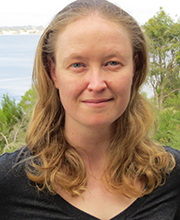 Julie Prytulak, Durham University, UK
Julie Prytulak, Durham University, UK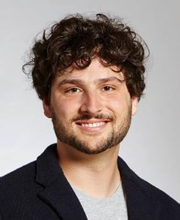 Paolo Sossi, ETH Zürich, Switzerland
Paolo Sossi, ETH Zürich, Switzerland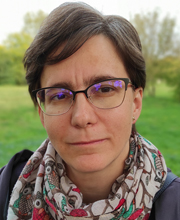 Bernadett Bajnóczi, Research Centre for Astronomy and Earth Sciences in Budapest, Hungary
Bernadett Bajnóczi, Research Centre for Astronomy and Earth Sciences in Budapest, Hungary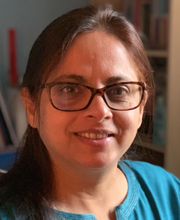 Pallavi Anand
Pallavi Anand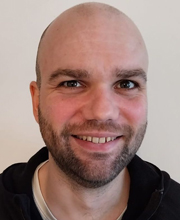 Baptiste Debret
Baptiste Debret Béatrice Luais
Béatrice Luais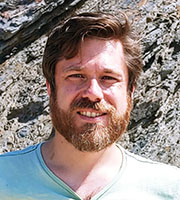 Raúl Fonseca, Ruhr-University Bochum, Germany
Raúl Fonseca, Ruhr-University Bochum, Germany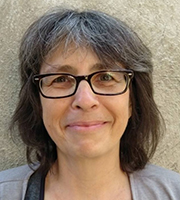 Silke Merchel, Faculty of Physics, University of Vienna, Austria
Silke Merchel, Faculty of Physics, University of Vienna, Austria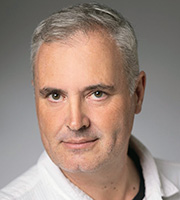 Carlos J. Garrido, Instituto Andaluz de Ciencias de la Tierra, Spain
Carlos J. Garrido, Instituto Andaluz de Ciencias de la Tierra, Spain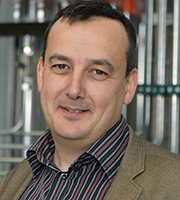 Dan Frost
Dan Frost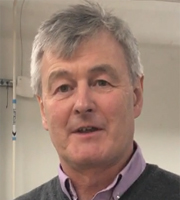 Martin Whitehouse
Martin Whitehouse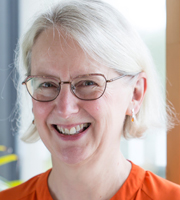 Karen Hudson-Edwards
Karen Hudson-Edwards Lena Alakangas, Luleå University of Technology, Sweden
Lena Alakangas, Luleå University of Technology, Sweden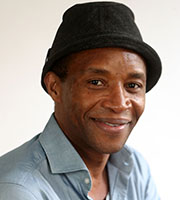 Ernest Chi Fru, Cardiff University, UK
Ernest Chi Fru, Cardiff University, UK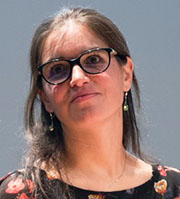 Johanna Marin Carbonne, University of Lausanne, Switzerland
Johanna Marin Carbonne, University of Lausanne, Switzerland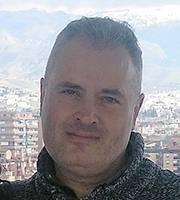 Carlos J. Garrido, Instituto Andaluz de Ciencias de la Tierra, Spain
Carlos J. Garrido, Instituto Andaluz de Ciencias de la Tierra, Spain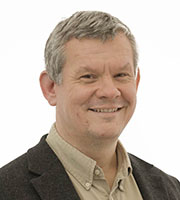 Stephan Krämer, University of Vienna, Austria
Stephan Krämer, University of Vienna, Austria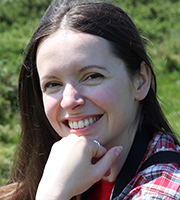 Kate Kiseeva
Kate Kiseeva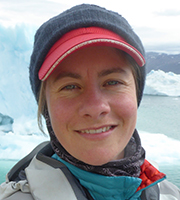 Susan Little, University College London, UK
Susan Little, University College London, UK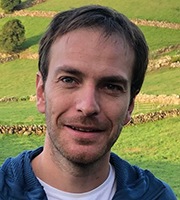 Olivier Namur, University of Leuven, Belgium
Olivier Namur, University of Leuven, Belgium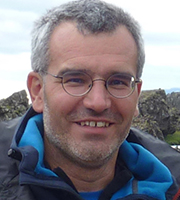 Ralf Halama, Keele University, UK
Ralf Halama, Keele University, UK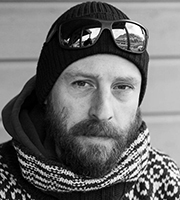 Jakub Zarsky, Charles University, Czech Republic
Jakub Zarsky, Charles University, Czech Republic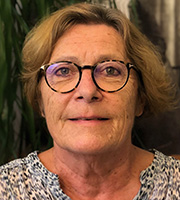 Catherine Chauvel
Catherine Chauvel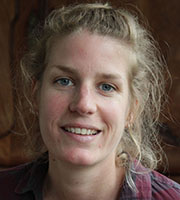 Janne Koornneef
Janne Koornneef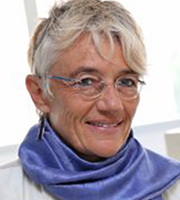 Catherine Jeandel
Catherine Jeandel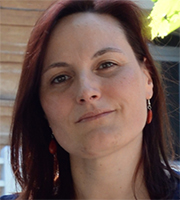 Carmen Sanchez-Valle
Carmen Sanchez-Valle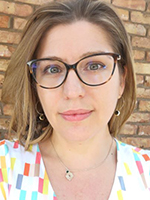 Heather Buss, University of Bristol
Heather Buss, University of Bristol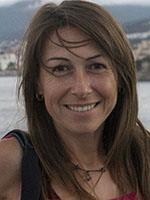 Nadia Malaspina, University of Milano-Bicocca
Nadia Malaspina, University of Milano-Bicocca 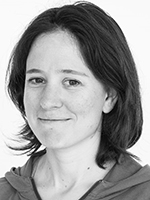 Jill Sutton, University of Brest
Jill Sutton, University of Brest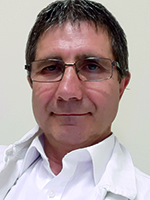 Attila Demény, Hungarian Academy of Sciences
Attila Demény, Hungarian Academy of Sciences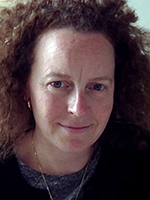 Ambre Luguet, University of Bonn
Ambre Luguet, University of Bonn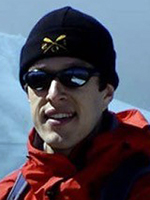 Philip Pogge von Strandmann, University College London and Birkbeck, University of London
Philip Pogge von Strandmann, University College London and Birkbeck, University of London 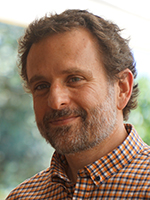 Itay Halevy, Weizmann Institute of Science, Israel
Itay Halevy, Weizmann Institute of Science, Israel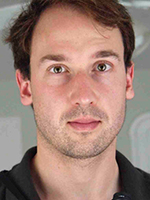 Christian Hallman, Max-Planck-Institute for Biogeochemistry & University of Bremen, Germany
Christian Hallman, Max-Planck-Institute for Biogeochemistry & University of Bremen, Germany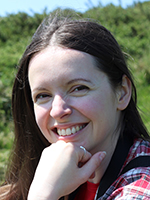 Kate Kiseeva, University College Cork, Ireland
Kate Kiseeva, University College Cork, Ireland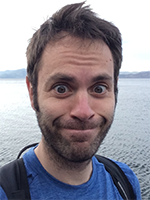 Alberto Vitale Brovarone, University of Torino, Italy & CNRS, France
Alberto Vitale Brovarone, University of Torino, Italy & CNRS, France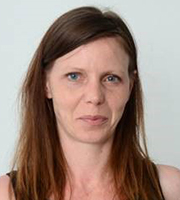 Maud Boyet
Maud Boyet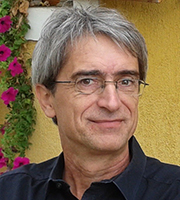 Mihály Pósfai
Mihály Pósfai